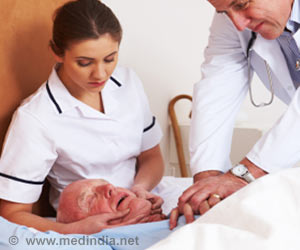
‘Post traumatic stress disorder (PTSD) from terrorist attacks and other traumatic events may increase the risk of developing heart disease and cancer.’
Read More..Tweet it Now
In the study of 84 individuals diagnosed with PTSD (39 victims of terrorist attacks and 45 victims of other traumatic events), males were more likely to have circulatory and metabolic complications, whereas females had a higher prevalence of benign and malignant cancers.Read More..
A longer duration of PTSD was associated with the development of cardiovascular disease, while PTSD following terrorist attacks was associated with a higher cancer prevalence.
"An explanation of why victims of terrorism may have a higher cancer prevalence than victims of other traumatic events, such as accidents, may be the intentional infliction of harm on the victim causing a more dysregulated stress response. A challenge for the future is monitoring the physical health of victims over time and understanding psychological and neurobiological processes producing this effect," said co-author Dr. Andrea Pozza, of the Santa Maria alle Scotte University Hospital, in Italy.
"Longer untreated PTSD was associated with higher prevalence of cardiovascular disease regardless of the event type: this suggests the importance of early intervention for PTSD and also education programs for the general population to make people aware about PTSD early warning signs and how to recognize them."
Source-Eurekalert















